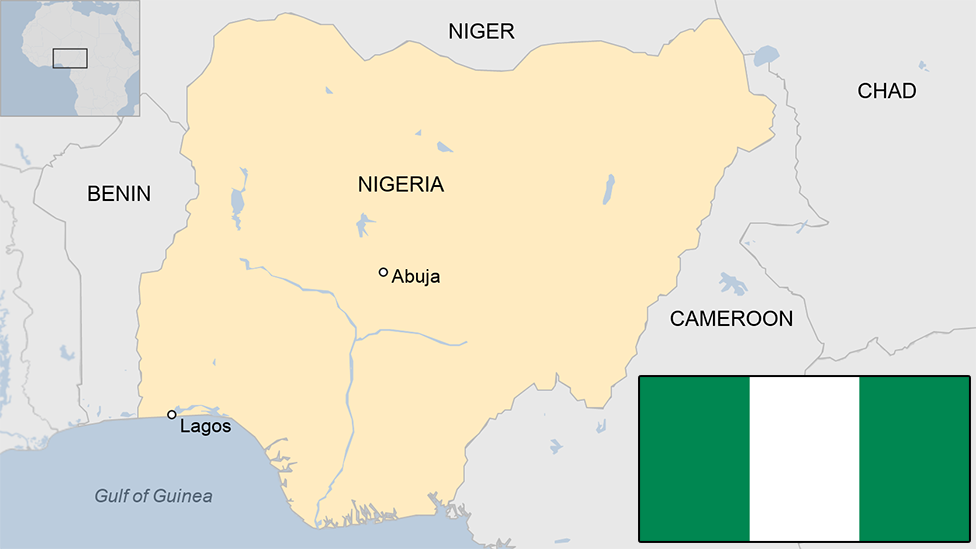Five things about Nigeria: The superpower with no power
- Published
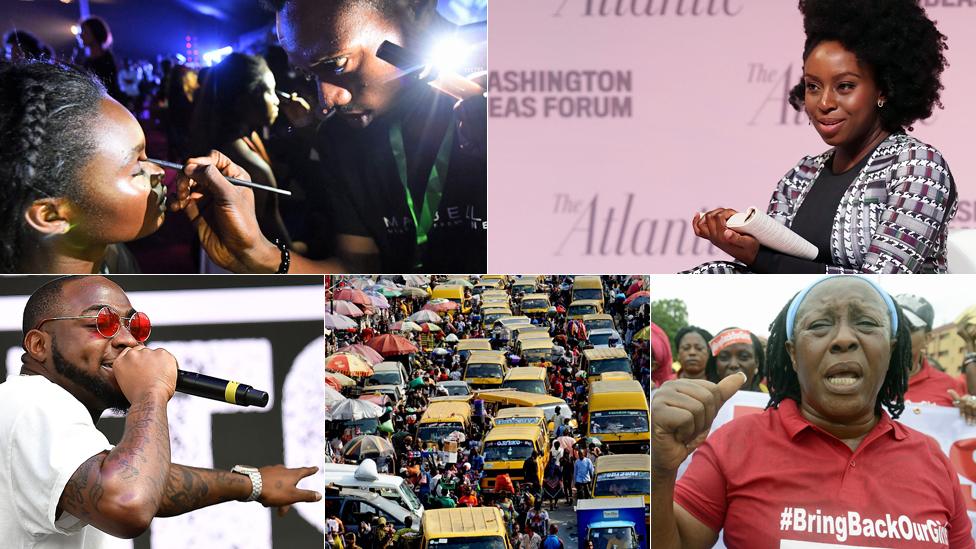
More than 84 million Nigerians are registered to vote, but what do you know about Africa's most-populous nation and largest economy?
1) Afrobeats - one of its greatest exports
Nigerian musicians are touring the world and picking up awards at the forefront of the global craze for Afrobeats. This is not to be confused with the late, great Fela Kuti's Afrobeat (without the s) - Nigeria's soundtrack to the 1970s and 1980s, which mixed traditional rhythms with funk and jazz.
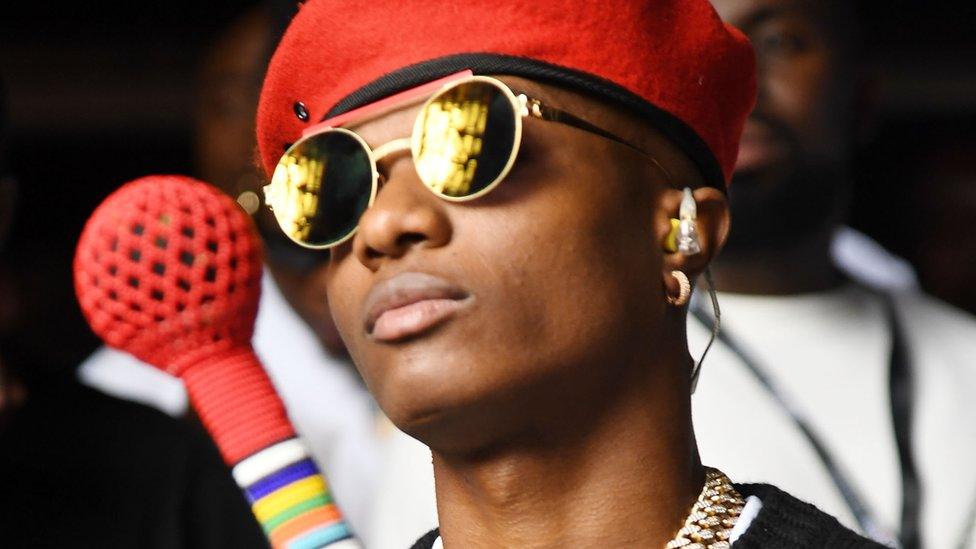
One of Africa's richest musicians, Wizkid began singing at the age of 11 in a church choir
These new stars, including Wizkid, Davido, Tiwa Savage and Jidenna, are proving to be some of Nigeria's biggest exports - so much so that global music giants such as Universal Music Group and Sony have set up offices in the country. Davido's Fall, released in 2017, is the most popular Nigerian music video ever - clocking up more than 100 million views and counting on YouTube, external.
"This West African phenomenon is not only dominating the sound of the continent, it has flown into club festivals and radio playlists across the globe," DJ Rita Ray told the BBC. "Afrobeats is also influencing genres from grime to RnB and music makers from Ed Sheeran to rappers Drake and Stefflon Don, who have all embraced Afrobeats in recent releases. And that's not to forget British-Nigerian singer, songwriter MNEK, whose writing and production credits include Beyoncé, Dua Lipa, Madonna, Diplo and countless more. Add up all the hits and he'd have more than a billion views on YouTube."
The sound evolved from Nigerian and Ghanaian Afro-pop music, incorporating genres like hiplife, azonto and dancehall - and it was D'banj's track Oliver Twist that launched the Afrobeats bandwagon in 2012, getting to number nine in the UK charts, she says.
Allow YouTube content?
This article contains content provided by Google YouTube. We ask for your permission before anything is loaded, as they may be using cookies and other technologies. You may want to read Google’s cookie policy, external and privacy policy, external before accepting. To view this content choose ‘accept and continue’.
Other Nigerian talent to look out for include Afrobeats musicians such as Yemi Alade, Tekno, Falz, Olamide, Simi, Mr Eazi, Mologo and Patoranking. "What makes Afrobeats so compelling is rhythm - Nigerians have always been hot on rhythms, it's the driving force of their music. Afrobeats takes this forward by stripping back to one of the component parts of their rich polyrhythms," says Rita Ray.
2) Acclaimed authors
It's not just music where Nigeria packs a cultural punch - it also boasts some of the world's greatest writers. Top of the list comes the late Chinua Achebe, whose debut novel, Things Fall Apart, has become a classic of post-colonial literature selling more than 20 million copies since its publication in 1958. It has also been translated into 57 languages. Wole Soyinka became the first African to be awarded the Nobel prize for literature in 1986 and Ben Okri's The Famished Road won the coveted Man Booker Prize in 1991.
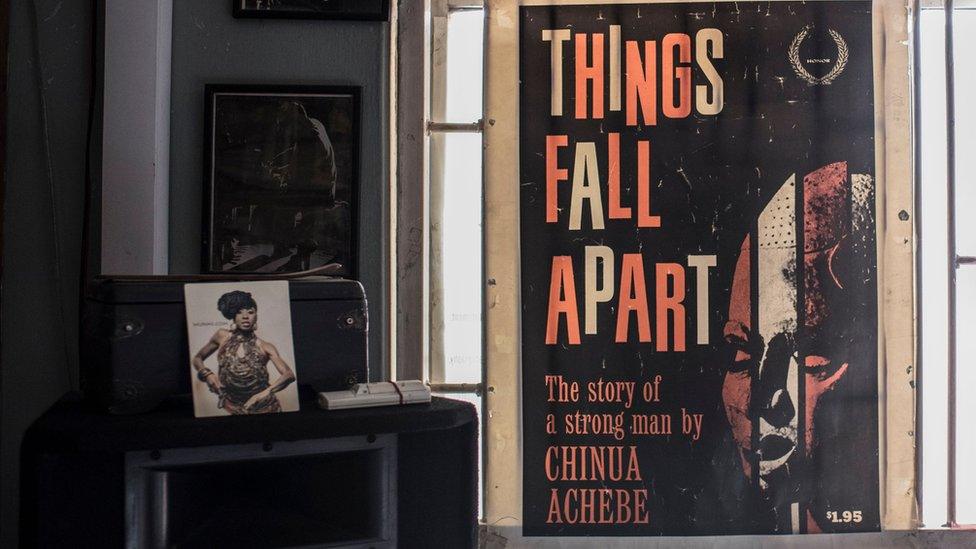
Chinua Achebe is regarded as the father of African literature
And contemporary writers like Chigozie Obioma, Helon Habila, Chibundu Onuzo Sefi Atta and Adaobi Tricia Nwaubani are keeping up the tradition, to name just a few of those scooping up prizes.
"Nigerians love to be seen and heard. There are probably hundreds of Africans telling amazing stories all over the continent, but Nigerians are getting most of the attention because we are bold and loud," Nwaubani told the BBC. "We aim to be at the top in everything we do. We make sure that everyone knows whenever we enter the building. Even those of us based in our home country, where there is a dearth of adequate publishing structures, are succeeding in commanding the attention of publishers and readers across the globe."
Given that Nigerians have a proverb to hand for every occasion, it is no surprise they are such fantastic storytellers, while the country's thriving multi-million dollar film industry, known as Nollywood, is testament to their love of a dramatic plot. Nigeria's multitude of ethnicities also adds to the creative mix.
Chimamanda Ngozi Adichie: 'We all breathe misogyny'
Arguably the face of feminism in the 21st Century is award-winning writer Chimamanda Ngozi Adichie, who neatly summed up the feminist cause in her book Dear Ijeawele: "The knowledge of cooking does not come pre-installed in a vagina."
3) Set to overtake the US
You're into dangerous territory in Nigeria if you try to establish which ethnic or religious group has the biggest population as it brings to the fore a multitude of rivalries - and tensions over money as the larger a state's population, the greater the budget allocated by the central government.
Yet there is no denying that Nigeria's population is growing at a dizzying speed. By 2047 it will have overtaken the US to become the world's third-largest nation with 387 million people, according to UN projections.
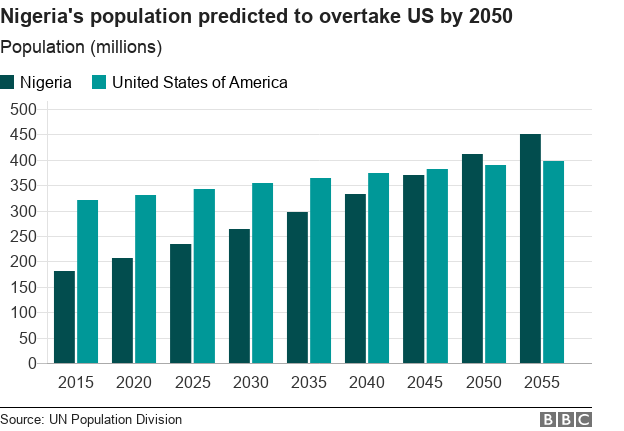
It is also a very young nation with more than 40% of the population of 196 million under the age of 14. And young people are set to play a huge role in this election with more than half of registered voters under the age of 35.
The huge growth presents an opportunity for the country with its entrepreneurial spirit as it could in theory take advantage of the economic dividend that a young dynamic population can bring. This is especially true as the workforce in more developed nations is getting older. But it is also a challenge for policy makers.
Young graduates can frequently be heard complaining that there are not enough high-quality jobs available, and many speak about hoping to leave the country.
Looking at population growth in Africa in general, former Nigerian President Olusegun Obasanjo has warned that without proper planning it could become a political catastrophe.
4) Lots of oil, little electricity
Some would argue that the real soundtrack of Nigeria is not Afrobeats, but the din of diesel generators as most Nigerians, even if they are connected to mains electricity, have to rely on them because power cuts are common. Some areas can go without power for weeks.
This is despite the fact that Nigeria is Africa's largest oil producer and currently pumps out around two million barrels a day. The tax revenue the government receives from the industry and the foreign exchange it gets from its export are vital to the economy. Though many Nigerians would be quick to remind you that much of its oil wealth has been squandered over the years.
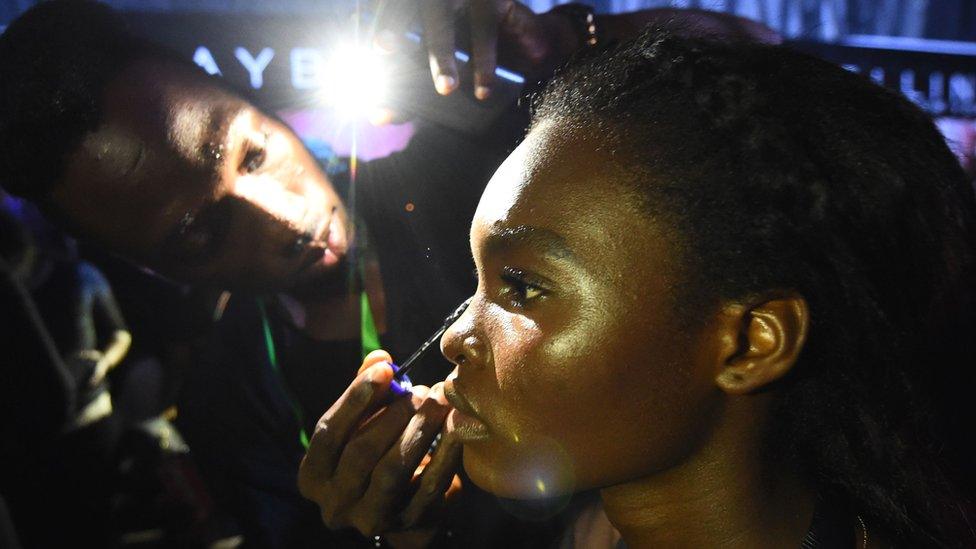
Make-up artists used phone lights during Lagos Fashion Week in October when the power failed
At one stage Nigerians used to joke that the old state-run power provider Nepa stood for "Never Expect Power Always". In a bid to overhaul the industry, the state firm was split up and privatised - a process that was completed in November 2013. Yet complaints about unfair billing and blackouts remain constant.
Electricity production has steadily increased since 2000, external but it has struggled to keep up with population growth, according to the International Energy Agency. Electricity supply per Nigerian has barely changed since 2005 because the population has grown in that time by approximately 57 million, which is the current population of South Africa, external.
Just more than half of all Nigerian homes have mains electricity, but there is a big urban-rural divide. More than four out of every five homes in towns and cities have mains power while only a third of homes in the countryside do, according to the National Bureau of Statistics. As well as being the continent's biggest oil producer, it is also its largest economy, but its power problems have hampered growth.
5) Home of Boko Haram
The hashtag #BringBackOurGirls brought the world's attention to an Islamist insurgency led by Boko Haram militants. Their kidnapping in 2014 of more than 200 girls from a school in Chibok, in north-eastern Nigeria, underlined the heart of their cause - opposition to Western-style education.
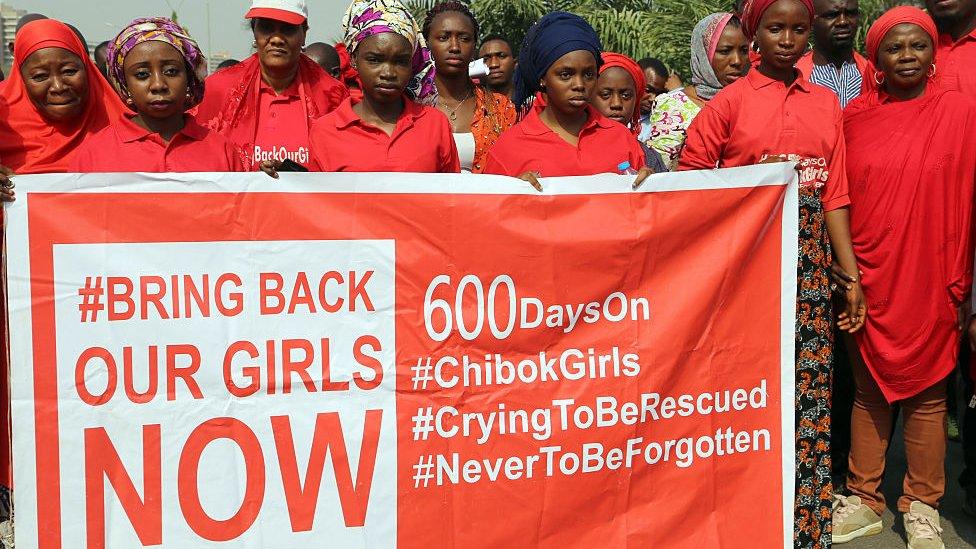
To date 112 Chibok girls remain missing
The group was founded in 2002 in the north-eastern city of Maiduguri, where local residents dubbed it Boko Haram, which loosely translated from the region's Hausa language as "Western education is forbidden".
Historically, the Muslim rulers of northern Nigeria had resisted direct British colonial rule. But Andrew Walker, author of a book about Boko Haram, "Eat the Heart of the Infidel", says it has even deeper roots. "There is a long history of Islamic radicalism in northern Nigeria, where two caliphates preceded colonialism," he told the BBC. "More recently, the notion that corrupt politicians were not Islamic became the springboard for Muslim cleric Mohammed Yusuf to found Boko Haram.
"The political culture of northern Nigeria, where local politicians court groups like Yusuf's hoping they can aid them in their political ends, incubated the group in its early days. Even before Yusuf and his followers turned to violence, the Maiduguri establishment worried about the mixing in of a charismatic preacher and his poverty-bound devotees to the pot of corrupt electoral politics."
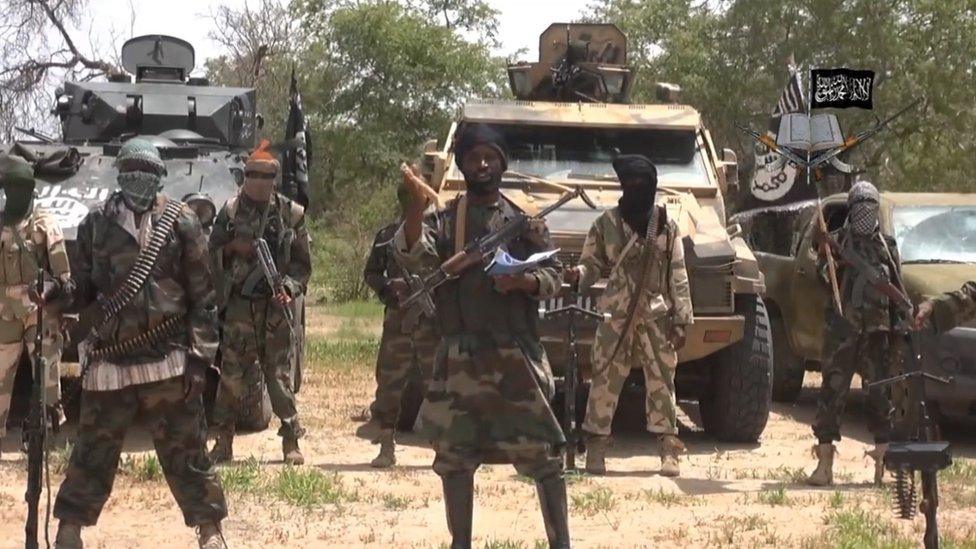
Boko Haram released many propaganda videos when it was at its strongest militarily
Mr Yusuf's death in police custody nearly a decade ago led the group to launch military operations to create an Islamic state. Many thousands of people were kidnapped and recruited into its ranks, and at one stage the group controlled swathes of territory across three states, imposing strict Sharia. At its peak, in 2015, Boko Haram was ranked the world's deadliest terror group by the Institute for Economics and Peace.
But in the last four years, the military, with international support, has managed to take back control of much of this land and rescued many of those taken hostage. Yet the militants are still proving deadly, with fighters from a Boko Haram faction loyal to Islamic State being behind an upsurge in violence ahead of the elections. And 112 of the Chibok schoolgirls are still missing.
- Published14 February 2019
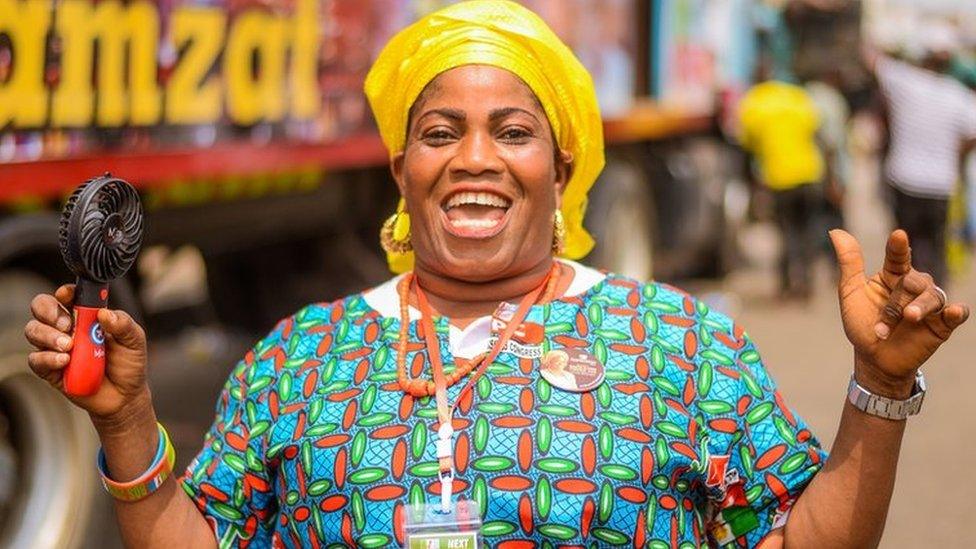
- Published4 February 2019
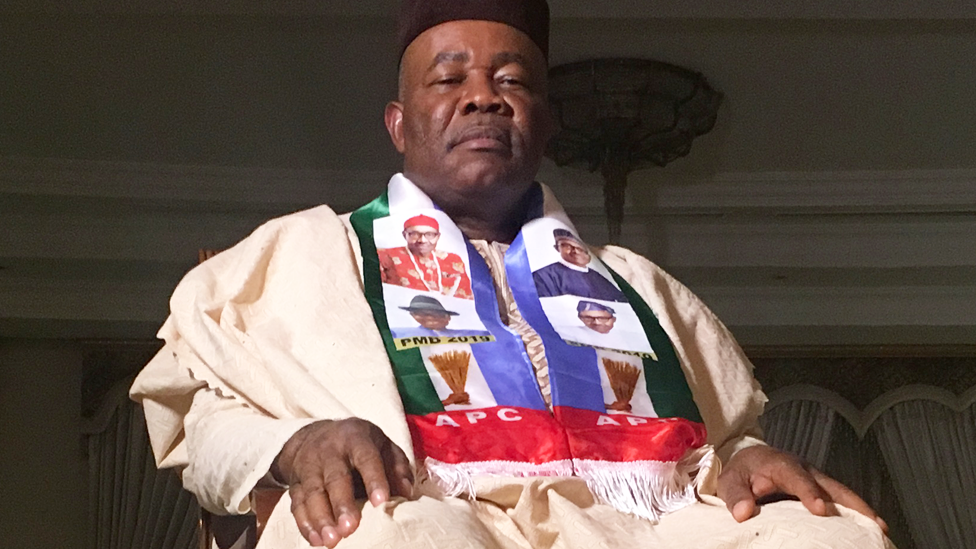
- Published9 February 2019
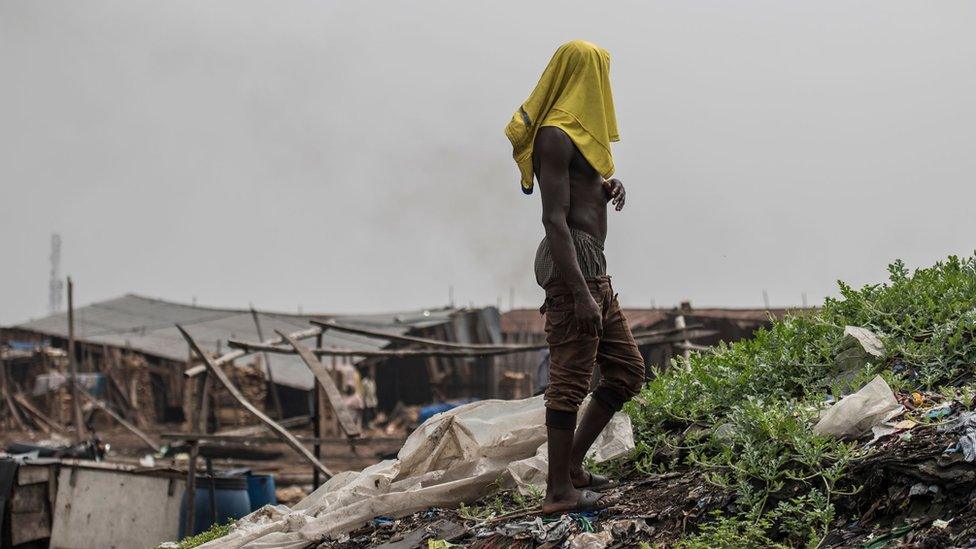
- Published31 October 2018
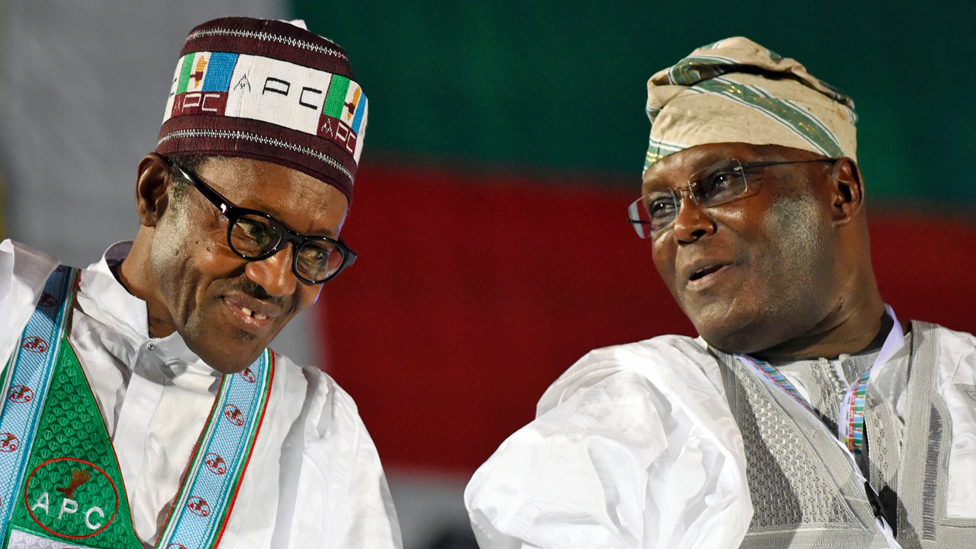
- Published24 January 2019
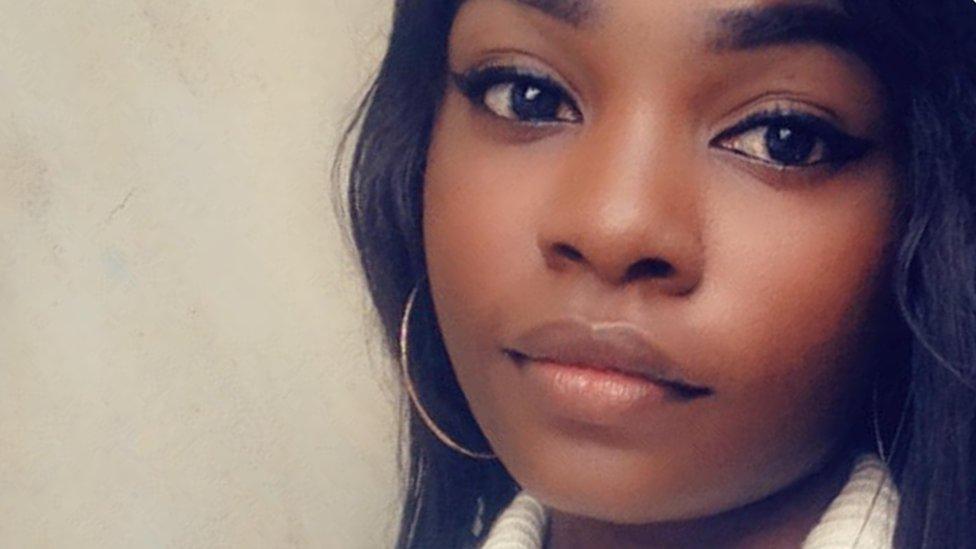
- Published28 July 2023
